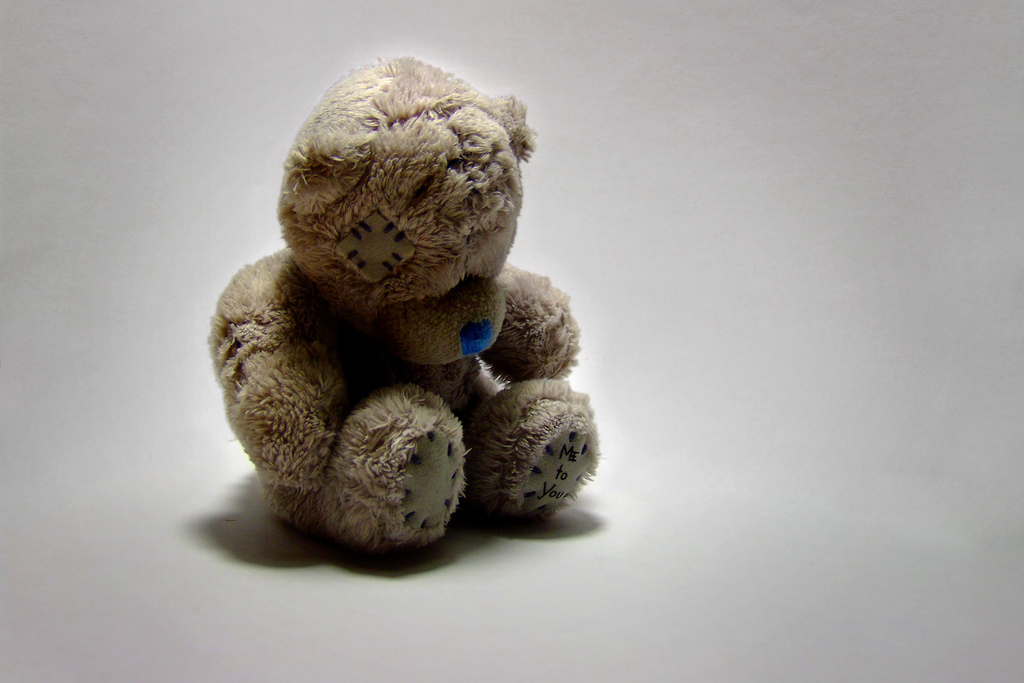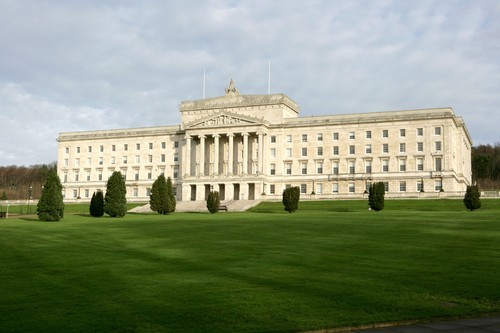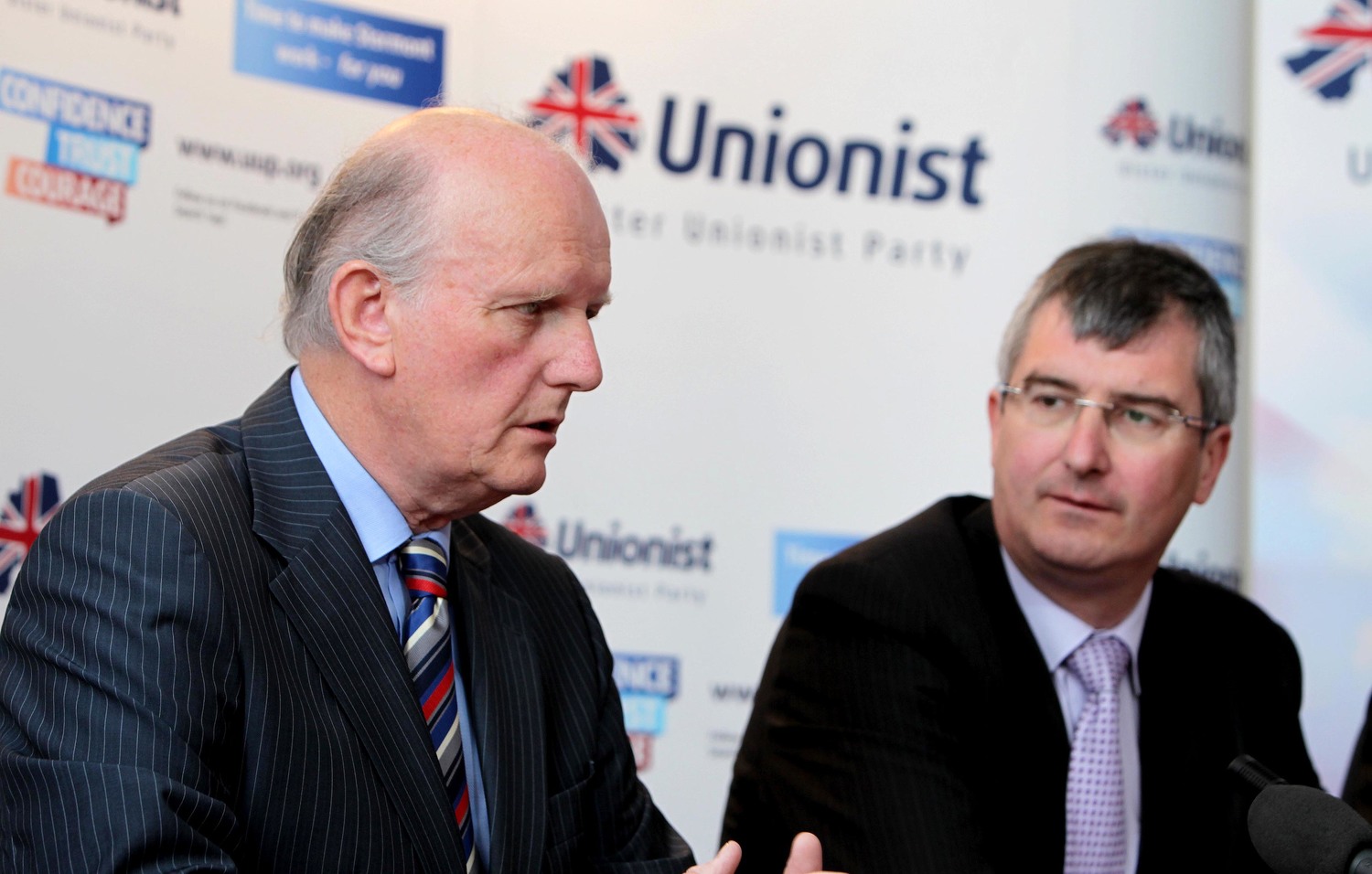THE Northern Ireland Human Rights Commission has mounted a legal challenge against Northern Ireland’s outdated adoption legislation, The Detail can reveal today.
Leave for the judicial review has already been granted at Belfast’s High Court.
If the challenge is successful, the Northern Ireland Assembly could be directed to introduce new laws which would allow unmarried and same sex couples to jointly adopt children, bringing us into line with the rest of the UK.
The NIHRC claims that our current law is discriminatory and out of line with human rights legislation and has accused the Department of Health, Social Services and Public Safety of failing to deal with the issue.
The department has been wrestling with how to modernise our adoption system for the past seven years after moves to update English and Welsh legislation began in 2000 and also in a bid to comply with human rights legislation.
A new adoption strategy was drawn up by the DHSSPSNI in 2006 after a two year review which aimed to modernise current legislation. However, draft proposals for inclusion in a new Adoption and Children Bill were only agreed by the Executive over a year ago in May 2010.
Former Health Minister Michael McGimpsey’s proposals included introducing special guardianships as an alternative to adoption, reducing delays in the adoption process, having a more child-centred approach and allowing step-parent adoption without the need – which exists currently – for birth parents to adopt their own child.
But, in a questionable move, he “deliberately excluded” the controversial new eligibility criteria – which would potentially allow gay couples to jointly adopt – in a bid to fast-track the law through the Assembly.
And the bill was withdrawn from the Assembly’s legislative programme in October 2010, just five months after it was introduced.
HOW THE BILL RAN INTO TROUBLE
From the start it was clear that the controversial elements of the proposed new laws would meet with strong resistance.
A massive 95% of the responses to the 2006 public consultation on the ‘Adopting the Future’ strategy were opposed to the controversial proposal to extend joint adoption to same sex and unmarried couples.
Following this, the Department of Health stated that the proposal was “in no way driven by any ‘political correctness’ agenda” and that children will continue to be adopted only by those who have been assessed and approved as suitable to adopt. It also stressed that cohabiting people can already adopt as single people.
However, the thorny proposal of gay and unmarried couple adoption was later removed completely by Mr McGimpsey. The Department of Health would not confirm when exactly this decision was taken or who was involved and instead claimed the issue of eligibility could have been re-introduced as an amendment at a later stage.
A draft Executive paper was issued by the Department of Health outlining proposals for the development of an Adoption and Children Bill in June 2009. The bill then lay in limbo for nine months at the Office of the First and Deputy First Minister.
The delay at Executive level was so protracted that former Health Minister Michael McGimpsey eventually removed the bill from the legislative programme in October 2010 claiming he had run out of time – pointing the finger of blame at OFMDFM as he did so for “holding up the proposals for nine months”.
The Detail has now learned that the Northern Ireland Human Rights Commission has made a successful application for a judicial review of Northern Ireland’s current adoption legislation.
Leave was granted by Belfast’s High Court last month and the case is listed for mention in September.
A NIHRC spokeswoman said: “The Human Rights Commission has been granted leave to take a Judicial Review in its own name regarding adoption law in Northern Ireland. The issue concerns an anomaly in Northern Ireland law that prevents unmarried couples, or same sex couples, from jointly adopting a child.
“The Commission’s concerns are around discrimination and the right to a family life given that the law at present does not comply with human rights and differs from practice elsewhere in the United Kingdom.
“The failure of the Department of Health, Social Services and Public Safety to deal with this issue led the Commission to make an application for judicial review.”
HOW THE GOVERNMENT HANDLED IT
The Detail was told by a number of sources that the Department of Health had considered progressing with the legislation in two bills – with the eligibility criteria removed to a second bill to be dealt with later.
We asked the Department of Health what had happened to the legislation since the Adopting the Future Report was published in 2006, to confirm whether the bill was to be split in two; the reason for the delay in implementing the new law; and if Health Minister Edwin Poots was still planning to proceed with the plan to extend joint adoption to civil partners and unmarried couples whether of different sex or the same sex.
We received a one-line response: “Final decisions regarding the new adoption legislation are pending the outcome of a current judicial review.”
In response to further questions from The Detail, the department confirmed that a single Adoption Bill had been removed from the legislation programme in October 2010 on the grounds that it was unlikely to complete the Assembly Bill process before dissolution.
We asked again if the department had considered splitting the legislation into two bills but this was strongly denied by the department.
However, the official Assembly record for April 19th 2010 reports Michael McGimpsey saying publicly during oral questions that he had “deliberately excluded” the eligibility criteria from the legislation so that the bill could be fast-tracked.
If, as the department says, there was only ever to be one bill – the plan appears to have been to oust eligibility criteria completely from the new legislation.
However, in a further response, the department spokeswoman still insisted: “A decision was not made to exclude the eligibility criteria from the bill.”
She claimed that Mr McGimpsey’s comment about deliberately excluding eligibility: “…does not necessarily mean that the issue of eligibility would have been separated out into a separate bill. It could have been introduced as a government amendment at committee stage, when all of the necessary clearances were secured.”
She also said that it would not be appropriate to release a copy of the 100-clause Adoption and Children draft bill to The Detail as it has not been through “the necessary clearance processes”, including clearance by a new Minister, the Executive and the Assembly Committee.
Ulster Unionist Party leader Tom Elliott – who has two adoptive children – backed his party colleague’s handling of the new legislation.
In an interview with The Detail, he said: “I would like our adoption laws to be updated particularly in terms of post-adoptive support and to make the process more streamlined and straightforward than it is at the moment.
“It is disappointing that the new legislation is not in place yet but I hope that we can get things moving in this new Assembly term.
“I know that some queries came back from OFMDFM and that it was too late to get the bill through in the last term.”
Mr Elliott said that Mr McGimpsey was “right in what he was trying to do” when he removed the eligibility criteria from the proposed bill.
Mr Elliott said: “I think he was trying to get the simpler aspects and non-controversial aspects of it through quickly and to leave the more controversial aspects to a different debate.”
The UUP leader would not confirm whether or not he personally would back same-sex couple adoption and instead said that he would need to first examine European legislation and what the courts have already decided on this issue.
UUP North Antrim MLA Robin Swann asked for an update on the proposed adoption legislation through a written Assembly question.
In a written response published last Friday, DUP Health Minister Edwin Poots said: " In light of the time which has elapsed since my department consulted on a range of options for adoption reform in Northern Ireland, I have asked my officials to revisit the original proposals and the public response to those proposals to ensure that they remain valid and fit for purpose."
He did not mention the pending judicial review.
The Office of the First and Deputy First Minister was asked repeatedly by The Detail to comment on its handling of the adoption laws and the reason for holding up the bill. We also asked if the office supported joint adoption by same sex and unmarried couples. No comment was issued.
ADOPTION: HERE AND ELSEWHERE
The first reported case of cohabitating lesbians adopting a child in Northern Ireland was in 2004 when an adoption order and a shared residence order were granted. During 2008, there were 80 adoptions by gay couples in England and Wales under the new legislation.
A Research and Library Service Briefing Paper on adoption compiled by the Northern Ireland Assembly in August 2010 states that the Adoption (NI) Order has become “somewhat outdated and in need of reform”.
This paper also states that the number of adoptions in Northern Ireland has fallen significantly from a peak of 554 in 1970 to less than 150 per year in 2003-2007. In 2009, 100 adoptions were recorded by the Northern Ireland Statistics and Research Agency. The number of ‘looked after’ children living in care in Northern Ireland has remained relatively stable over the last decade at around 2,500 children.
Around 50 years ago many adopted children were babies given up for adoption by unmarried mothers. However, adoption is now more about providing permanent homes for older children who cannot be cared for by their parents. Many of these children have been taken into the care system to protect them from significant harm.
The complex needs of many of these children – coupled with a shortage of willing prospective adopters – often results in a long wait for a permanent family.
Adoption is a complex and time consuming process which takes on average around two and a half years to complete in Northern Ireland – compared with a year and a half in the rest of the UK.
Updated legislative measures in the other jurisdictions have made the adoption process more accessible and less time consuming. New legislation was fully implemented in England and Wales in 2006.
Earlier this week, The Times newspaper revealed details of a landmark report into the state of adoption services in England. Martin Narey, who is due to soon be appointed the coalition government’s new ministerial adviser on adoption, has recommended a complete overhaul of the “hopelessly slow” and failing system that leaves children languishing in care.
He proposed that abused children should be taken out of their homes to live with prospective adoptive parents right away, rather than wait for years in care for their fate to be decided. He also said that local authorities who run adoption services, should be ranked each year on their performance to highlight the worst performers.
In England, the government has already set a target that 95% of children should be placed with a family within 12 months of a decision being taken that adoption is in their best interests. There are no similar targets in Northern Ireland.
In 2008, only 45% of children adopted from care in Northern Ireland were placed for adoption within 12 months of the best interest decision – compared to 77% in England. Some adopters here wait for very long periods to be matched with children, despite children being available for adoption in other parts of Northern Ireland.
In November 2009, 74 married couples and eight individuals in Northern Ireland approved as adopters were awaiting placement of a child.
In some cases in Northern Ireland, court approval for “freeing orders” need to be secured to release children for adoption against the wishes of their birth parents, if this is determined to be in the best interests of the children.
The Detail revealed last month that hundreds of children from 220 families were put up for adoption in Northern Ireland without the consent of their parents or guardians between 2005 and 2010.
THE EFFECTS OF DELAYING CHANGE
The proposed new legislation included that “freeing orders” should be replaced with new pre-adoption orders. The department described freeing orders – which continue to be used by our courts – as “extremely draconian” as they require the removal of all parental responsibility from the parents, leaving the child with no individual having parental responsibility for him/her.
DHSSPSNI figures show there were 2,433 children in local authority care in Northern Ireland in March 2008 and only 64 looked after children were adopted in 2008.
Children who remain looked after in the care system for long periods are more likely to be suspended/expelled from school, to leave school with little or no qualifications, be cautioned or convicted of a criminal offence, in poor health, unable to gain employment and victims of drug abuse/prostitution/teenage pregnancy etc.
However, adoption is not suitable for all children living in care – some will return home or find alternative care arrangements.
In 2008, a landmark ruling by the House of Lords was made allowing unmarried couples here to apply to adopt children jointly for the first time which should have brought Northern Ireland into line with the rest of the UK.
Solicitor Evelyn Melanophy, who now works for James H Rodgers & Co Solicitors in Portadown, represented the Northern Ireland family involved in the case.
Speaking to The Detail, Ms Melanophy said: “The legal ruling in 2008 effectively lifted the legal ban in Northern Ireland on unmarried couples applying to be considered as eligible to jointly adopt.
“The majority decision taken by the Law Lords embraced the need for change and legislative reform in Northern Ireland – however the Northern Irish legislative position has remained unchanged despite this remarkable legal ruling.
“The dissenting Law Lord in the House of Lords case remarked that any decision should be made by the ‘democratically elected legislature’.
“The dissent within the Assembly and the perceived reluctance of the Department of Health, Social Services and Public Safety Social Services to encourage adoptions by unmarried heterosexual, gay and lesbian couples and civil partners will only serve to delay the legislative process even further.”
Catherine Couvert, from Belfast, is a lesbian mother and has written a comment article for The Detail today.
She argues: “The so-called debates on same sex parents should be about children’s rights, not about religious morality.
“I am a lesbian mother. My children have rights. What people forget when they have endless discussions over whether gays should be allowed to be parents, is that we already are parents. Birth parents, foster parents, adoptive parents. What is bad for our children is discrimination, prejudice and negative comments about their families.
“Our children, like all children, need love, security and acceptance. They need to hear in their schools, their youth clubs, on the news, in shows like Talkback, in the Northern Ireland Assembly, that society accepts them and respects their families.”
Stephen McVey is an adoptive parent and development manager for Adoption UK in Northern Ireland which supports prospective and adoptive parents.
He said: “The days when most children were adopted as babies are now gone. Most children are adopted from care where they have ended up as a result of abuse or a traumatic background.
“They are likely to have been in care for some considerable time with the average age of adoption in Northern Ireland moving close to five-years-old.
“I think most people would agree that the current legislation is not fit for purpose in the current environment. I would be very keen for our legislation to catch up with the rest of the UK.
“We would like to see consistency in post-adoption support so that parents do not need to fight for everything they need.
“I hope that the judicial review will raise awareness of the issue and give greater urgency to the need for new legislation.”
David Holmes is chief executive of the British Association for Adoption and Fostering (BAAF).
He said: “BAAF will continue to highlight the need for the reform of Adoption Legislation in Northern Ireland. Adoption has a huge impact on children and families and the development of any reform in this area is therefore one of the most profound responsibilities to be exercised by government.”
The DHSSPSNI’s Adopting the Future strategy document stressed in 2006: “Given the complex nature of adoption and the huge impact it has on the lives of children and families, the development of adoption policy and legislation is one of the most critical responsibilities to be exercised by Government.”
Serious questions must be asked about our politicians’ handling of the issue so far.


